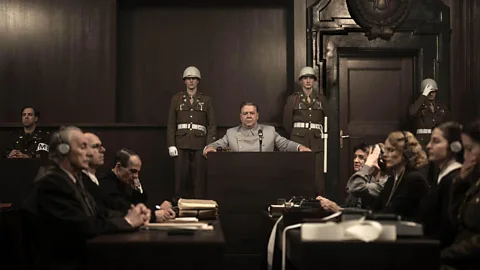“They weren’t buddies,” author El-Hai tells the BBC. “But they formed a connection, and Kelley recognised that they shared certain personality traits.” As well as acknowledging Göring’s charm and intelligence, the doctor noted his drive, his defiance, his enormous ego, and his intense loyalty to family and country.
 Alamy
AlamyThe doctor’s own ambition was to identify among the Nazis a shared psychosis or particular derangement, because only that, he believed, could account for their monstrous acts. Yet after intense study, Kelley conceded the men were fundamentally opportunists who had grabbed the chance to exercise power and exploit others. “And he concluded there have always been people like this, although the atrocities they commit are much smaller,” says El-Hai.
Rami Malek, in the role of Kelley, and Russell Crowe, playing Göring, have excellent onscreen chemistry. The audience watches the pair converse, jousting and joking, and coming to trust each other. Göring enlists Kelley’s aid to communicate with his wife and daughter, and the doctor, defying protocol, hand-delivers letters to them for Göring.
During one exchange with Kelley, included in the book but not the film, Göring tells the doctor he fears that he and his wife will both soon be dead, and asks the doctor to adopt their seven-year-old daughter Edda, and raise her in America. While Kelley did not record how exactly he replied, El-Hai wrote: “This astonishing request – a sign of Göring’s respect for Kelley – moved the psychiatrist, who knew how much Edda meant to her father.”

